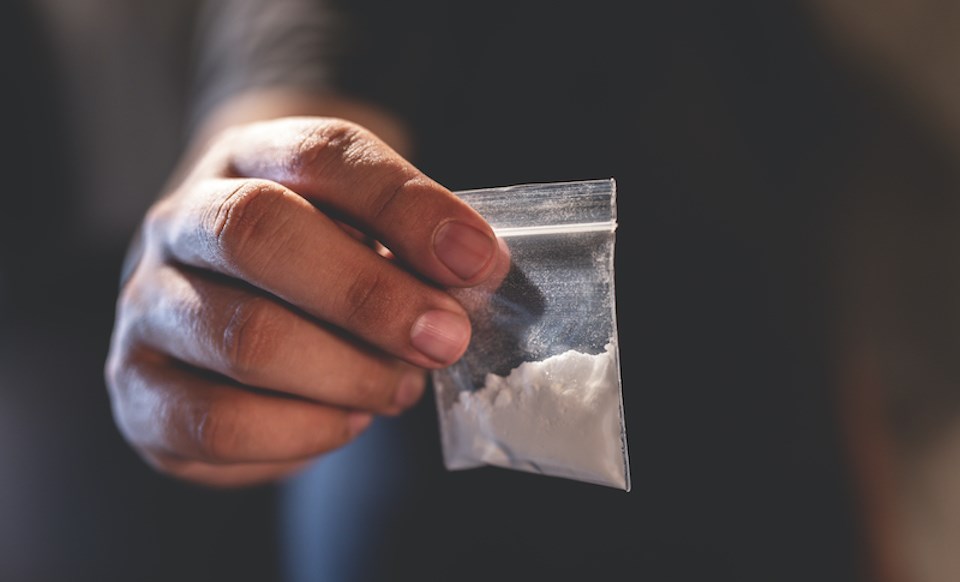"Six years in, six feet under."
It's a gutting sentiment that provides insight into why a local drug advocacy group says it is taking extreme measures to provide drug users in the province with clean heroin, methamphetamine, and cocaine.
On Tuesday, (April 12) the B.C. Coroners Service released preliminary data stating that 174 people died from overdoses in February. And April 14 will mark a grave milestone in the province: six years since the overdose crisis was declared a public health emergency.
In response, the Drug User Liberation Front (DULF) and its supporters have shipped out 17 grams worth of clean drugs across B.C. to members of various drug user groups.
How did they do it?
DULF co-founder Eris Nyx tells Vancouver Is Awesome that the group won't disclose exactly how the illicit substances were transported across the province — but she notes that the drugs were delivered successfully.
"In the last six years, almost 10,000 people in B.C. have died," underscored the frustrated advocate, who mentions that one of her friends nearly died of an overdose this week after consuming fentanyl off the street.
"I got a text from my friend who was with him and was responding to the overdose and I was like, 'this is going to kill everyone I know.'"
Members of various drug user groups will participate in a Zoom call on Thursday about the need for an immediate "scaled up, regulated supply of drugs and the sanctioning of community lead compassion clubs," explains a news release.
The coalition of drug advocacy groups aims to demonstrate the "life-saving potential of a community-led response" to the overdose crisis as well as the "need for necessary alternatives to prohibition and the unregulated drug supply."
The distributed drugs have been tested "via FTIR spectrometry, mass spectrometry, and immunoassay" and are free of fentanyl, fentanyl analogues, benzodiazepines and other harmful cuts, buffs and adulterants.
Alcohol is also a dangerous drug but it is regulated by the government, Nyx adds.
"If you had a poisoned alcohol supply where there was methanol in half of the alcohol, it wouldn't make any sense for the government to react by being like, 'you can go to your doctor and your doctor can prescribe three light beers.'"
In October 2021, Vancouver City Council unanimously approved a motion for a federal exemption for a compassion club model to supply safer drugs to people who use drugs. Since then, however, there hasn't been any other momentum on the project.
As the overdose crisis accelerates, more people will die unless urgent action is taken by the federal government, Nyx underscored.
"I know as many people who have destroyed their lives with alcohol as I do with heroin. We need to regulate the deregulated market."
Health Canada says heroin is now a 'new' treatment option in Canada
Health Canada says it has legalized heroin as a treatment option for people with "severe opioid use disorder."
But local advocates in Vancouver say the barriers to accessing clean heroin will still prevent the lion's share of people from getting it. Further, the announcement—or at least the way it was described on social media by Health Canada—isn't new.
While the program will be available to drug users who are enrolled in Injectable Opioid Agonist Treatment (IOAT) programs, the drug is only available to people who have "failed" first.
Find out more about the program for accessing clean heroin and the announcement.




